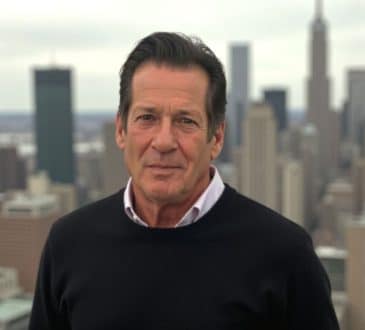Top Five Reasons to Hire Chief Health Officer as an Addition in the C-Suite

The traditional approach towards occupational safety and health at the workplace during this ongoing COVID pandemic has been severely tested and found wanting. The emphasis on physical safety and routine medical surveillance (for chemical exposure) do not equip the industry players to be ready battling the new emerging infectious disease like the COVID-19. Conflicting messages, inconsistent directives from national leaders further confuse the workplace leadership in navigating this unprecedented, challenging crisis.
Previous global public health events that led to disrupt corporate and business activities include the avian flu, Severe Acute Respiratory Syndrome (SARS), Middle East Respiratory Syndrome Coronavirus (MERS CoV), Ebola, and Zika. Pandemic COVID-19 has indeed caused major, longstanding disruptions to business continuity with disrupted supply chains and limited access to consumers. Business operation, the employees, families and communities are all affected. Not surprising to note that “Infectious disease control” topped the list of health requirements considered to have increased in complexity, with “Mental Health Support” ranks second and followed by “Business continuity” and “Regulatory compliance” as key finding of a new report commissioned by the International SOS Foundation.
Therefore, the defining moment for the Chief Health Officer (CHO) has arrived to review the current company’s policy, approach towards health issues and introduce a wider, holistic and agile strategy not just to prepare, respond, mitigate the future pandemic, but also to address other sustainability issues like climate change and various factors contributing to employees’ health. Pandemic is a wakeup call for all industries to take part actively in the business of health, ensuring healthy lives and promote well-being for all (UN SDGs, 2015).
Health is a resource for everyday life, not the state nor objective of living. New approach should therefore advocate for individual or group to realise aspirations and to satisfy the ongoing needs, coping the change of the environment, responding effectively during the pandemic. Understanding this, farsighted companies like Constellation Brands, Woolworths, Delta Air Lines and Virgin Pulse had recruited CHO as their latest addition to the C-Suite in early pandemic.
Top five reasons for hiring CHO
- Keeping employees safe, healthy, and productive
CHO focuses on steering the company’s healthcare policy in keeping the employees safe, healthy and productive. A healthy working population translates to lower turnover and higher productivity. Psychosocial hazard is the hazard presents in all workplaces, more so at current COVID-19 pandemic as employees are experiencing high level of anxiety and depression following the longstanding uncertainties.
Apart from advocating annual health screening programme, the CHO is expected to create an ecosystem that promotes healthy lifestyle by engaging with the top executives at C-Suite level. The emphasis is on maintenance of health as part of the main agenda of the organization- an investment worth investing. Following up employees of existing medical conditions, different job tasks, and working hours helps in determining the impacts of those in workplace productivity. Revisit current policy to promote and maintain health, control existing medical risk factors, and provide Employee Assistance Programme (EAP) should be the key focus areas for the CHO in the C-suite level.
Long working hours (> 55 hrs/week) has been associated with a higher risk of both ischemic heart disease and stroke (ILO). Since 1980s, Japan has recognised that hazard and karoshi (death from overwork) is a compensable occupational disease in Japan. Implementing continuous long working hours and compromising employees’ health in the name of efficiency and productivity is always not a wise strategy. Leveraging the latest technology, it is timely for CHO to propose Artificial Intelligence (AI), Machine Learning (ML) taking over routine and manual tasks, reducing the errors and even workplace accidents. The digitalisation of business data, management, automation, reporting and collaboration within enterprises is no longer an option but a top priority.
The concept of new norm remains as a moving target as workplaces are still trying to figure out what works best in each situation, from working remotely, flexible working hours to convert physical meetings to a hybrid manner. Thus, tool for workplace productivity like absenteeism rate may need to be revised.
Ever changing of workplace arrangement, increasing poor work-life balance brought upon the pandemic could potentially take a toll on employees’ mental health. Remote and flexible work may offer a better work-life balance to some but that is not universally the solution as the boundaries between personal and professional lives become increasingly fluid. CHO could seek them out hearing their latest needs while navigating such unprecedented season of uncertainty. Many employees are requesting for more personalised benefits, access to mental-health services, childcare assistance, home-work stipends and general flexibility with their work arrangements. Depending on the nature of the job and workplace environment, CHO could recommend what is best for the employees’ health without compromising the visions set by the organisation.
Timely return to work from illness and quarantine period helps improving employee’s wellbeing. A comprehensive return to work flow can be established by CHO. With the medical background and insights into epidemiology of the ongoing pandemic, the CHO position oneself as the vital subject matter expert (SME) within the organisation.
- Ensuring customers health and safety
The safety of the customers is just as important. CHOs play an crucial role in ensuring all health guidelines extend to them as well. For example, they can safeguard and advise on potential exposure areas, establishing meetings protocols, create customer policies, and make the final call on whether an event can be safely proceed, given the COVID-19 current scenario.In the event of natural disaster, customers and communities surrounding the company may be affected as well. Timely roll out, continuous update on the status of company for the customers must be carried out align with the latest public safety advice from relevant government authorities.
- Protect business continuity
Pandemic has caused significant global impact to all industries. While companies may not be able to prevent all disasters but well prepared and executed response will help in business continuity and recovery.By recruiting CHO with public health emergency background, the company demonstrates its commitment towards creating a future with business continuity plan (BCP) in response to long term pandemic. Unlike the traditional BCP where the focus is on impact of natural disaster, pandemic preparedness plan requires a different approach as the pandemic usually lasts for months. Employees may not be able to resume work during quarantine period and there are some social disruptions, like school closure by health authority.
Introducing an annual review on company’s pandemic preparedness plan and carrying out various forms of drills (simulation exercise) must be one of the immediate agendas pushed forward by the CHO. To make the exercise relevant, CHO must convince all C-suites members in identifying the essential core services, staffing arrangement for those services, communication strategy for employees, customers and suppliers, financial implications and contingency plans for the unexpected. Evaluation of the plan along with identifying the potential gaps is an ongoing effort. All employees are updated with the latest revision on the pandemic preparedness plan periodically from the CHO.
Even with exhaustive planning, critical events seldom play out exactly as predicted. Thus, as the SME on health and medicine, CHO must be flexible in planning and execute the disaster response accordingly to mitigate the business continuity threats.
- Key spoke person on health for the company
In the midst of responding to a disaster or pandemic, very often “infodemic” of fake news and conspiracy theories are flooding the social media. Such phenomena is worrying, not least it can undermine trust in the health institutions and public health measures. Therefore, the CHO must address this ongoing threat by improving the health literacy and health seeking behaviour with great urgency. Being the key spoke person on health issues, CHO must establish a two ways communication within the organisation for the employees to get the latest, reliable, practical evidence-based advice and guidance.Advocating COVID-19 vaccination and practising public health measures in workplace are the key messages in preventing the viral transmission in workplace. Vaccination, as such should be made mandatory for all, unless medically contraindicated. Workplace health risk assessment may warrant a COVID-19 point of care testing (POCT) periodically, if sporadic cases are reported consistently in the community. The newly appointed CHO of Royal Caribbean cruises was tasked to implement and monitor an elaborate testing strategy when the cruise line is cleared to sail again.
CHOs are increasingly charged with establishing and maintaining open channels of communication with local public health officials to ensure alignment on the implementation of control measures.
- As a symbol of dynamic organisation and leader in industry
Pandemic has not only raised awareness and consciousness of health for all but has exposed limitations and gaps in current system that warrant immediate intervention. The public health crisis exposed the deeply entrenched disparities, with low-income areas and certain communities affected at much higher rate than others.Keeping that in mind, CHO must reflect based on past experiences to include these social determinants of health in drafting the next effective solution to mitigate its potential impact. It is a positive trend if the hiring of CHO could introduce new health awareness and culture to the workplace and communities. Managing the collective health through and beyond pandemic is now everyone business.
From time to time, CHO also has the opportunity to network with key industries’ leaders in order to revise or even introduce a new minimum standards for self-regulation for that particular industry. Both industry standards and self-regulation are helpful additions to current legislative regulations. Other industries will eventually emulate the trend of self-regulation in order to keep up with the competition. By introducing self-regulatory, the CHO has indirectly created a positive competitive advantage for the company and distant itself as one of the leaders in the industry. That is a positive image towards promoting the company to its customers and investors.
In short, current pandemic calls for a rapid paradigm shift on how the concept of health is perceived. Conventional approach when addressing health issues within workplace inclined to focus on accident prevention, ensuring safe working environment, and preventing occupational diseases. New norms comes with new challenges which must be met with revised planning and responses. It is high time to introduce CHO into the C-suite to accomplish these new challenging missions.
Written by Dr. Sze Loon CHOW, Public Health Medicine Specialist and Occupational Health Advisor; Dr. Dicky Ng Teik Kee, Occupational Health Doctor, Lifestyle Medicine Doctor, Penang Adventist Hospital.
Have you read?
# Best Citizenship and Residency by Investment Programs.
# Richest People in New York and Their Net Worth, 2022.
# The World’s Top 10 CEOs Over 70 Years Old.
# These are the world’s most and least powerful passports, 2022.
# Case Study: LVMH’s Bernard Arnault, Apple’s Tim Cook, and Elon Musk.
Bring the best of the CEOWORLD magazine's global journalism to audiences in the United States and around the world. - Add CEOWORLD magazine to your Google News feed.
Follow CEOWORLD magazine headlines on: Google News, LinkedIn, Twitter, and Facebook.
Copyright 2025 The CEOWORLD magazine. All rights reserved. This material (and any extract from it) must not be copied, redistributed or placed on any website, without CEOWORLD magazine' prior written consent. For media queries, please contact: info@ceoworld.biz








